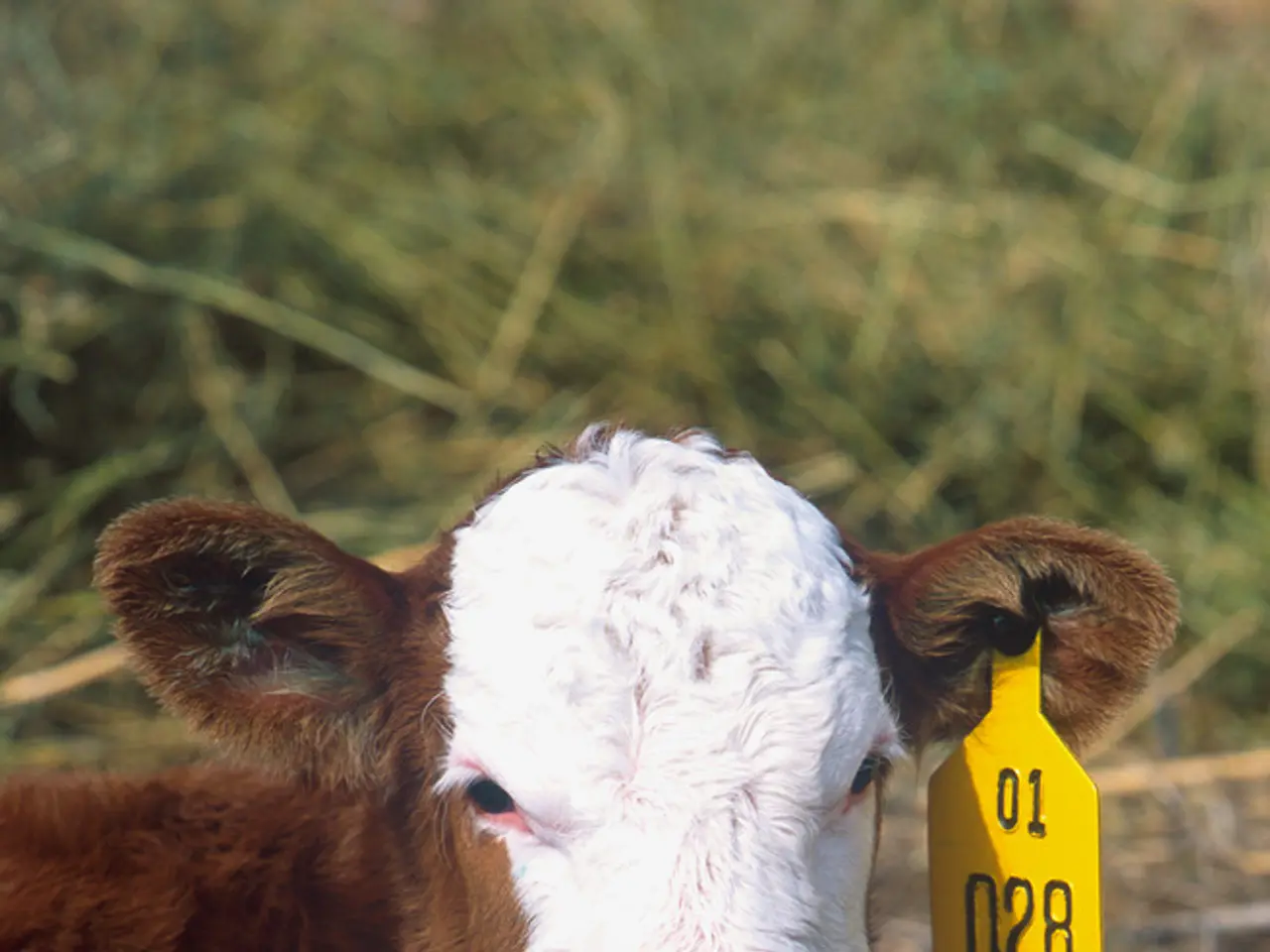Nestlé Constructs Agro-Solar Plant at Biessenhofen Facility, Combining Solar Energy Generation with Cow Shade
Nestlé Unveils Sustainable Agri-Photovoltaic Plant in Germany
Nestlé, the world's largest food and beverage company, has taken a significant step towards sustainability with the construction of an Agri-Photovoltaic (Agri-PV) plant in Biessenhofen, Germany. The project, a partnership between Nestlé Germany and renewable energy company BayWa r.e., is set to be a model for sustainable energy generation and regional agriculture integration.
The 4.74-hectare plant, due for commissioning in September 2025, will be built adjacent to the Nestlé Nutrition factory, which celebrates its 120th anniversary this year. The facility produces infant milk formula, culinary products, and drinks and nutritional supplements from Nestlé Health Science.
The Agri-PV plant will cover a significant portion of the factory's power consumption, with electricity generated by the PV plant expected to power approximately a quarter of the factory's operations. The plant will also be used for cattle and calf rearing, hay production, and will serve as shade and shelter for the animals.
Maria Rita Zinnecker, District Councilor of Ostallgäu, described the Cow-PV facility as a model for sustainable energy generation and regional agriculture integration. The facility supports Nestlé's goal of driving electrification and reducing CO2 emissions. By 2030, Nestlé aims to halve its global greenhouse gas emissions and achieve net-zero emissions by 2050.
A modern cow barn with automated milking technology will be built next to the PV plant. The project is a testament to Nestlé's commitment to sustainability, as around 70% of its electricity in Germany already comes from German photovoltaics and wind power. With the new PV facility, a significant portion of the electricity will even come from the immediate vicinity in Biessenhofen.
Nestlé is investing around 3 million euros in the project. A total of 7,800 solar modules will be installed on the plot, with the solar panels at a height of 2 meters in the southern part to provide shade for adult cows and 1.80 meters in the northern side for a "calf kindergarten". The plant is expected to provide power equivalent to the annual electricity consumption of approximately 2,000 single-family households.
The Cow-PV system by Nestlé is being installed between the cities of Biessenhofen and Marktoberdorf in Bavaria. By 2025, all Nestlé sites worldwide are to be supplied with 100% renewable electricity. The facility also supports the sustainable electrification through heat pumps, with a high-efficiency heat pump having been supplying the plant's internal district heating network since July 2024, reducing both CO2 emissions and energy costs at the Biessenhofen site.
The Agri-PV facility is a significant example in sustainability and renewable energy, setting a precedent for the integration of agriculture and renewable energy production. As the world continues to grapple with climate change, initiatives like this from Nestlé demonstrate a commitment to a greener, more sustainable future.
Read also:
- Understanding Hemorrhagic Gastroenteritis: Key Facts
- Stopping Osteoporosis Treatment: Timeline Considerations
- Tobacco industry's suggested changes on a legislative modification are disregarded by health journalists
- Expanded Community Health Involvement by CK Birla Hospitals, Jaipur, Maintained Through Consistent Outreach Programs Across Rajasthan








